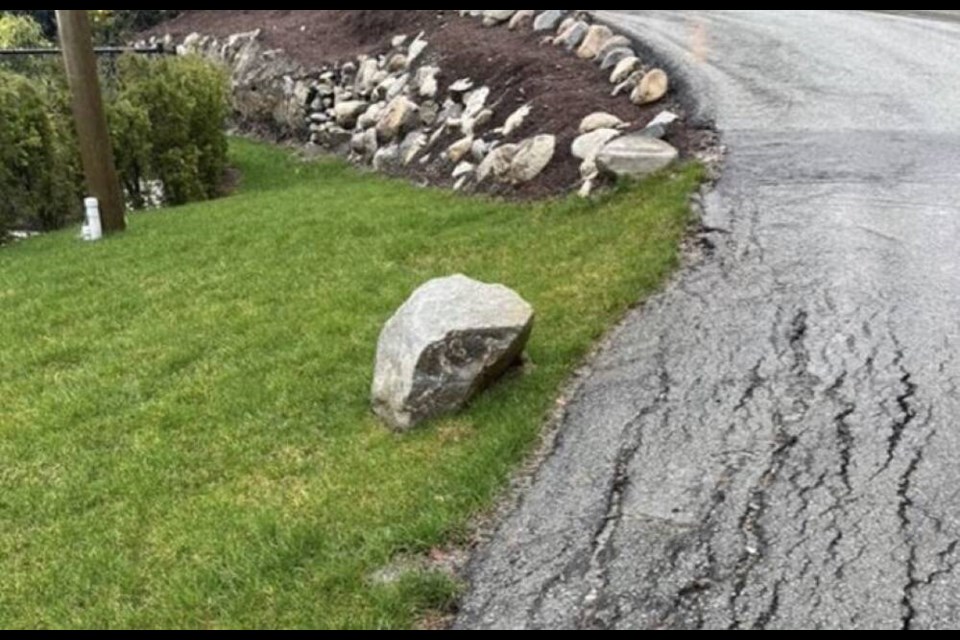A homeowner in West Vancouver has been told to move several large rocks placed on a public boulevard near their property. Council made the decision at a July 21 meeting after reviewing a staff report and hearing from the property owner.
The rocks are located on district-owned land outside a home at 2035 Russet Way. Officials said the stones, some as large as two feet wide, were placed about 0.8 meters from the road. According to the bylaw, structures or objects on public boulevards must be at least two meters from the roadway.
In April 2024, the homeowner received a permit to build a new driveway, stairs, and retaining walls. During a final inspection in October 2024, district staff noticed the rocks and flagged them as non-compliant. For the work to pass final review, the rocks needed to be removed or relocated.
The homeowner said the stones were placed to protect the boulevard grass and prevent vehicles from parking on the area. He requested a variance, hoping to keep them in place. Staff advised him to apply for an encroachment permit, which he did in March 2025.
However, staff said the permit application did not meet the required guidelines. They noted the rocks could be dangerous for passing vehicles and might block emergency access. The homeowner then chose to appeal directly to the district council.
At the council meeting, homeowner Greg Coombs explained that the rocks serve a purpose. He said the property sits on a steep slope, and vehicles, especially in winter, often slide toward the curb. This leads to ruts and erosion in the grass. Coombs argued that large stones help reduce this damage and protect the asphalt from crumbling.
He also claimed it was a common practice in the area. Many residents, he said, use rocks to protect their boulevards. He hoped the council would make an exception in his case.
But members of the council were not convinced. One council member, after visiting the site, said the rocks were an “eyesore” and gave the impression that the homeowner was trying to prevent public parking in front of the house. She noted that other properties had small decorative rocks, not large boulders like those at Coombs’ property.
Another council member voiced concern about safety. She said the presence of large rocks on public land could increase the risk of damage to vehicles. She also pointed out that such obstructions might block emergency access or create legal issues for the district if damage occurs.
Ultimately, council agreed with staff that the rocks posed a problem. They denied the permit request and ordered the rocks to be moved at least two meters back from the road. The homeowner must now comply with the district’s bylaw if he wants his renovation work to pass final inspection.
The decision highlights the importance of following public land use rules in West Vancouver. While residents may seek to protect their lawns or improve their property’s appearance, public boulevards are shared spaces. Any changes made to them must meet safety standards and receive proper approval.

